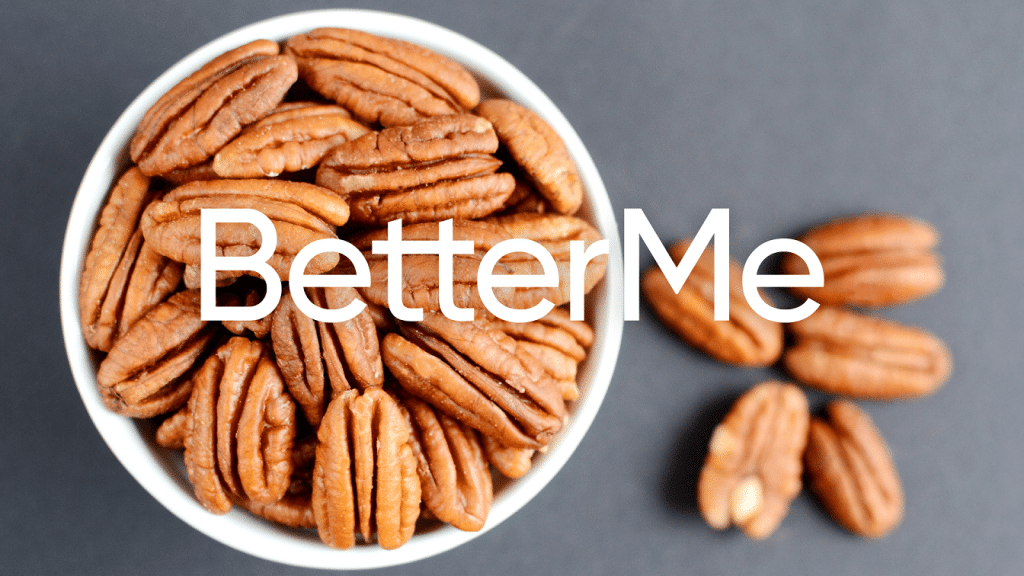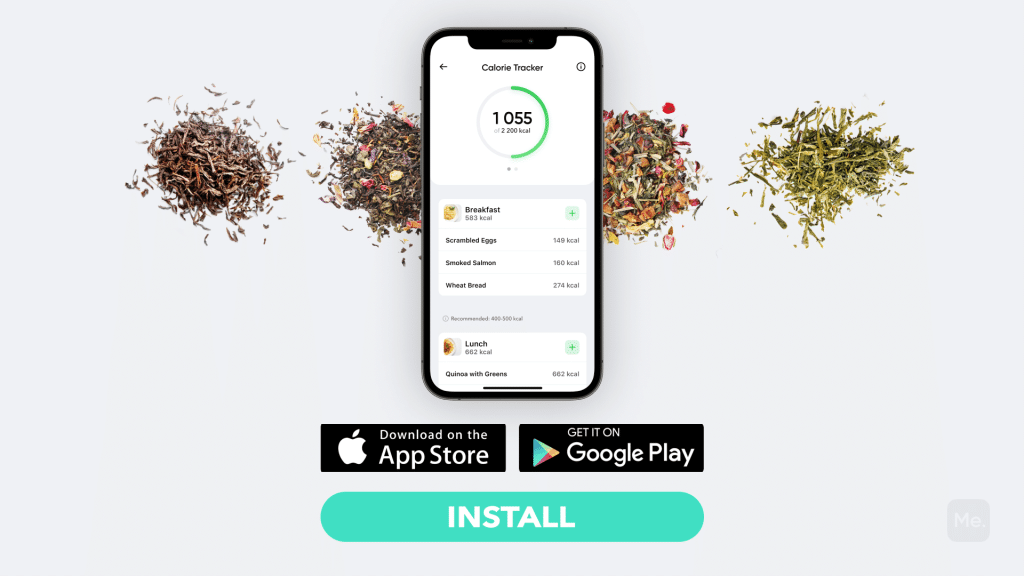With the growth in popularity of intermittent fasting and other fasting methods for weight loss, one may wonder as to exactly what happens when you fast? We all know that over time you will lose some weight but what prompts this? Are there some bodily functions that are affected? What risks are linked to this?
Get your personalized
meal plan!
In today’s article, we’ll be taking an in-depth look at what happens to your body when you fast. We’ll also include different timelines, that is, we’ll discuss what happens to your body when you fast for 24 hours, 3 days, 12 hours, a week, and more. Is it okay to go without food for a couple of hours to a week? What health benefits have been linked to it and are there any risks associated with it?
What Happens When You Fast For 16 Hours?
The 16/8 method is one of the most popular types of intermittent fasting. It is the method most suggested to beginners as it is quite easy to handle. Many people use the 16/8 method due to its promises of weight loss, but other than this what else happens to your body when you fast for 16 hours?
-
Weight Loss
Starting with the obvious, losing weight is one of things that may happen to you when you fast consistently for 16 hours every day. In 2016, a study looked at the weight loss effects of intermittent fasting. At the end of the study, researchers found that the resistance-trained men who consumed 100% of their energy needs over an 8-hour period (16/8 fasting method) experienced greater fat loss than those who ate the same diet but consumed their meals over a 12-hour period.
Read More: 30 Day Fast Weight Loss: Can You Fast Your Way To Fat Loss?
-
May Lower Your Risk Of Type II Diabetes
In 2014, a review set out to compare the effects of intermittent fasting as compared to calorie reduction on the body. At the end of their study, the researcher found that intermittent fasting and alternate day fasting showed promising results as an alternative to traditional calorie restriction in regards to lowering the risk of type 2 diabetes in overweight and obese people, although more research is needed (11).
-
May Help Lower Blood Pressure In Obese Patients
In a study published in 2018, 23 obese persons were put on the 16/8 fast for about 12 weeks. At the end of the study period, not only had the body weight and calorie intake gone down in the IF group, but also their systolic blood pressure readings had decreased (6).
-
May Improve Brain Health
Fasting in general (not just for 16 hours) has been known to help improve cognition, stall age-related cognitive decline, slow neurodegeneration, reduce brain damage and enhance functional recovery after stroke (9).
What Happens To Your Body When You Fast 12 Hours?
If the 16/8 method is too much for you, then you can try the 12:12 IF method which some beginners find to be much easier to handle. If you are wondering what happens to your body when you choose this method, here are some things you may experience:
- Reduced bloating. If you are always bloated and gassy and nothing seems to work for you, try going without food for 12 hours. Giving your digestive system a long break from working might help it reset and prevent future bloating.
- Reduced mindless snacking. If you find yourself constantly and mindlessly reaching for snacks because you are bored, try going without eating for 12 hours. Making this a goal will help you practice mindful eating, which will prevent you from snacking aimlessly.
Over time, you will notice more benefits of fasting for 12 hours; such benefits include better memory, improved cognition, and more energy. Doing this may also extend your lifespan, reduce the risk of disease, and improve cardiovascular health.
What Happens When You Fast For 3 Days?
Also known as a water fast, it is often done by people looking to lose some weight or for other religious reasons. During these 3 days people often go without food and can drink up to 3 liters (if not more) of water a day. Food and other drinks such as coffee, tea, alcohol, and zero-calorie sports drinks are not allowed.
So, what happens when you fast using this method?
1. May Lead To Weight Loss
When you weigh yourself after a 3-day fast you are likely to realize that your weight has gone down. It is suggested that because your body will not have any carbohydrates to use as energy during this time, it turns to your body’s stored fats and uses them as an energy source instead.
On the other hand, the weight loss might be as a result of losing water weight – extra water stored in the body that causes bloating and puffiness. An easy way to lose water weight is through drinking more water which happens during a 3-day fast. Also using up your stored carbohydrates (glycogen) in the first part of a fast leads to loss of water weight because water is stored along with glycogen and gets released when you metabolize it.
2. May Help Lower Blood Pressure
According to a study done in 2002, medically supervised water fasts can help people lower their blood pressure. In the study, 68 patients with borderline hypertension were placed under a medically supervised water fast for 1 to 2 days.
Unlike other water fasts, however, the participants were allowed to consume some fruits and vegetables and it was done in a closely monitored inpatient setting. At the end of the study, about 82% of the subjects achieved a normal blood pressure rate of 120/80 mmHg and below (12).
Looking for a way to break the vicious cycle of weight loss and tone up all the jiggly parts? Watch the extra pounds fly off and your muscles firm up with the BetterMe app!
3. May Promote Cell Recycling
Also known as autophagy, aka ‘self eating’, it is a natural process whereby your body cleans out damaged cells, in order to regenerate newer, healthier cells. When your body does this, it helps to protect you against many illnesses such as cancer, heart disease, as well as progressive neurodegenerative conditions like Alzheimer’s.
Several studies have shown that targeting autophagy in cancer treatment can be beneficial. Recently in 2019 one study showed that using autophagy modulators has produced promising results in the treatment and chemosensitization of tumors (13). The theory of why autophagy is considered necessary for cancer treatment was also further explained by another older study done in 2014 (2).
A 2016 review found that defects in autophagy could be one of major contributors to Alzheimer’s disease (3). In light of this, fasting for 3 days may help boost autophagy hopefully reducing your risk of this progressive neurodegenerative condition. It is important to note that while autophagy may be a beneficial process, there is little to no human evidence that intermittent fasting diets actually increase it.
In 2018 a study done on mice that fasted for 72 hours showed that it promotes body weight suppression and fat oxidation in the lab mice.
Who Should Not Be Fasting?
As we have seen above, fasting has its benefits and its risks and when done well the benefits seem to heavily outweigh the risks. However, even with the knowledge of what happens to your body when you fast, there are some people who should not fast as it could prove to be very risky for their health and well-being.
The groups of people who should not fast include:
-
People With Diabetes
It can cause dangerous dips and spikes in blood sugar.
-
Pregnant Women
Weight gain is normal in pregnancy. Even if you are concerned about the amount of weight you are gaining, or your doctor has warned you about your weight gain, do not fast. Instead, speak to your doctor and he/she can advise you on dietary and lifestyle changes to make that will be safe for you and your child during this time.
-
Breastfeeding Women
The same case applies as with pregnant women. Fasting while breastfeeding can lead to nutrient deficiency in your milk supply to your baby. You risk depriving your newborn of important nutrients such as iron, iodine and vitamin B-12.
It can also lower your milk supply in general. It may also cause you to suffer from anemia, fatigue and shortness of breath, and muscle weakness. Instead of risking all this, choose to adopt healthy lifestyle changes that will keep you and your newborn healthy.
-
Anyone With A Chronic Illness
-
Children, Teenagers, And The Elderly
-
People With A History Of Eating Disorders
Fasting has been linked to not only the onset but also to triggering the recurrence of eating disorders in recovering patients.
1. According to MedicineHelp.net, anorexia nervosa is one of the eating disorders that is most closely related to fasting. This could be because anorectics often obsess about weight and what they eat and often use fasting as a way to control their weight.
2. May increase the risk of the onset of binge eating and bulimia – A study published in 2010 followed 496 teenage girls for about 5 years. At the end of the 5-year study, researchers found that participants who fasted showed stronger and more consistent predictive relations to future onset of recurrent binge eating. They also noticed that fasting also increased the risk of bulimia (10).
Psychology Today also supports this statement. According to them several studies revealed that:
3. Fasting can trigger more binge-eating episodes in patients suffering from BED (binge-eating disorder)
4. Cognitive-behavioral therapy (CBT-E) for eating disorders has better results in decreasing the frequency of binge-episodes in patients with bulimia nervosa and BED.
Ps. While BED and bulimia are both serious eating disorders, they are not the same thing. While both disorders involve frequently consuming unusually large amounts of food in one sitting and feeling that eating behaviour is out of control, those suffering from bulimia tend to purge their system of all the extra food consumed in an effort to rid themselves of the extra calories.
They may use purging methods such as vomiting, fasting, and exercising excessively to achieve this. Those suffering from a binge-eating disorder do not do this.
Read More: 12-Hour Intermittent Fasting For Weight Loss And Other Benefits
What Happens When You Eat Too Fast?
How many times have you wolfed down your meal as you hurried to get to a meeting, watch the game, meet up with friends or just to get back to work before your lunch hour is up? While eating fast every once in a while is not one of the worst things you could do, science suggests that eating too fast and often can lead to several health problems.
They include:
-
Weight Gain
Yes, you read that right; eating too fast will lead to weight gain. The main reason behind this is that when you are eating too fast, you are most likely to end up overeating. It is said that it may take up to 20 minutes from when you start eating for your brain to realize that you are full.
When you are constantly inhaling your meals, you end up not giving your brain enough time to process whether you are full or not, and thus will end up eating way more food than someone else who took their time.
Several studies have also linked fast eating to weight gain and obesity.
- In 2006 a study done on middle aged Japanese men and women revealed that those who consumed their meals quickly had a higher BMI than those who did not. This study was done by comparing the men and women’s BMI changes from when they were 20 years old to their age at the time (5).
- In 2011, one study done on children aged between seven and nine years old revealed that, the children who ate rapidly were three times more likely to be overweight than those who ate slowly (14).
- Another study done in 2011, this time on middle-aged New Zealand women showed that the women who ate fast had a higher Body Mass Index than those who did not. These results were achieved after careful consideration of other influencing factors such as age, smoking status, menopause status, thyroid condition, ethnicity, socioeconomic status, and physical activity (8).
- A recent review of more that 20 studies done in 2015 showed that people who tend to eat quickly had a higher BMI and are twice as likely to be obese than those who took more time at the dinner table (1).
-
Insulin Resistance
This is the key feature in type II diabetes. Eating fast has been linked to a higher risk of insulin resistance by several studies. In 2008 a study of non-diabetic Japanese civil servants suggested that fast eating is associated with insulin resistance (4).
-
Type II Diabetes
With insulin resistance comes progression to type II diabetes. One clinical study of 234 diabetes patients and 468 non diabetic participants found that fast eaters had twice the increased risk of getting this chronic illness.
The study in question came to this conclusion after controlling for factors such as a family history on diabetes, body mass index, waist circumference, educational level, morning exercise, smoking and plasma triglycerides level, all which can increase your risk of the disease (7).
-
Metabolic Syndrome
Formerly known as ‘syndrome x’ it is a cluster of conditions that when occur together increase your risk of chronic illnesses such as heart disease, stroke and type 2 diabetes. These conditions include high blood pressure, high blood sugar, excess body fat around the waist and abnormal cholesterol or triglyceride levels.
In 2018 one study brought together middle-aged subjects (642 men and 441 women) who had had no metabolic syndrome. The participants were then divided into 3 groups depending on their eating speeds; slow, normal, or fast eaters.
Five years later in 2018, the researchers found that 11.6% of fast eaters had developed metabolic syndrome, compared with 6.5% of the normal eaters, and 2.3% of the slower eaters. The researchers associated faster eating with more weight gain, higher blood glucose and larger waistline.
-
Indigestion
Eating too fast is one of the factors that may trigger indigestion. When you consume your food too fast you may end up experiencing an unpleasant fullness, or heat, burning, or pain in the area between the navel and the lower part of the breastbone.
-
Bloating And Gas
This happens because you tend to swallow more air when you eat too fast.
If you tend to let yourself off the hook, raise the white flag when things get tougher than you expected, send yourself on an unconscious binge-eating trip – BetterMe app is here to help you leave all of these sabotaging habits in the past!
What Happens When You Fast For A Day?
If you are wondering what happens to your body when you fast for 24 hours, the effects of going without food for a couple of hours to about 3 days are the same across the board. Going without food for a day:
1. Induce ketosis. Once the body lacks carbohydrates to use as an energy source it turns to burning stored fat to help give you energy and keep all your organs functioning as required. The fat is converted to ketone bodies which can be used by your brain as a fuel source.
2. Aids in weight loss but only if you are consistent. If you are looking to lose weight then alternate day fasting could work for you. Going for 24 hours at a time without food puts you at an overall calorie deficit which is the greatest trick to shedding those unwanted pounds.
3. Promotes heart health. Going without eating for a day, once to twice a week may help prevent cardiovascular illnesses. The practice may help reduce the levels of “bad” LDL cholesterol and blood triglycerides which can cause heart attacks.
4. Improves brain health. As stated above, fasting may help improve cognition and in the same breath the practice has been shown to reduce inflammation, which works to prevent neurodegenerative disorders such as Alzheimer’s and Parkinson’s disease.
5. Improves immunity. Fasting has been known to help decrease inflammatory markers in the body. Chronic inflammation can trigger your immune system to attack healthy tissue and organs in your body. If left unchecked and untreated it increases your risk for diseases like diabetes, heart disease, cancer, and rheumatoid arthritis. Fasting is one way to naturally reduce these inflammation markers and stay healthy.
What Happens When You Fast For A Week?
Please note that fasting for a week is not advisable, especially if you are planning on doing a water fast, or worse a dry fast (going without both food and liquids, even water). Remember that the threshold for an unsupervised water fast is 3 days – nothing more.
Our bodies need vitamins, minerals, and other nutrients from food to stay healthy and going without eating for a week will cause nutrient deficiencies. Remember that while short-term fasting can cause some minor side effects, doing it for long (e.g. a week) can lead to worse and even life-threatening issues such as anemia, a weakened immune system, liver and kidney problems, and irregular heartbeat.
The Bottom Line: What Happens To Your Body When You Fast?
Going without food for a couple of hours to up to 3 days is generally a safe practice for healthy adults that has multiple potential health benefits. It may lead to weight loss, improve brain health, cognitive function, reduce your risk of metabolic syndrome and chronic illnesses, and even help improve digestion.
However, please note that despite its benefits, it has some health risks and not everyone should do it. Before trying it out, please seek advice from your doctor.
DISCLAIMER:
This article is intended for general informational purposes only and does not address individual circumstances. It is not a substitute for professional advice or help and should not be relied on to make decisions of any kind. A licensed physician should be consulted for diagnosis and treatment of any medical conditions. Any action you take upon the information presented in this article is strictly at your own risk and responsibility!
SOURCES:
- Association between eating rate and obesity: a systematic review and meta-analysis (2015, pubmed.ncbi.nlm.nih.gov)
- Autophagy and Cancer Therapy (2014, ncbi.nlm.nih.gov)
- Autophagy in Alzheimer’s Disease (2016, ncbi.nlm.nih.gov)
- Eating fast leads to insulin resistance: findings in middle-aged Japanese men and women (2008, pubmed.ncbi.nlm.nih.gov)
- Eating fast leads to obesity: findings based on self-administered questionnaires among middle-aged Japanese men and women (2006, pubmed.ncbi.nlm.nih.gov)
- Effects of 8-hour time restricted feeding on body weight and metabolic disease risk factors in obese adults: A pilot study (2018, ncbi.nlm.nih.gov)
- Fast eating and the risk of type 2 diabetes mellitus: a case-control study (2013, pubmed.ncbi.nlm.nih.gov)
- Faster self-reported speed of eating is related to higher body mass index in a nationwide survey of middle-aged women (2011, pubmed.ncbi.nlm.nih.gov)
- Fasting as a Therapy in Neurological Disease (2019, ncbi.nlm.nih.gov)
- Fasting Increases Risk for Onset of Binge Eating and Bulimic Pathology: A 5-Year Prospective Study (2010, ncbi.nlm.nih.gov)
- Intermittent fasting vs daily calorie restriction for type 2 diabetes prevention: a review of human findings (2014, pubmed.ncbi.nlm.nih.gov)
- Medically supervised water-only fasting in the treatment of borderline hypertension (2002, pubmed.ncbi.nlm.nih.gov)
- Targeting Autophagy for Cancer Treatment and Tumor Chemosensitization (2019, ncbi.nlm.nih.gov)
- The effect of eating behavior on being overweight or obese during preadolescence (2011, pubmed.ncbi.nlm.nih.gov)

















